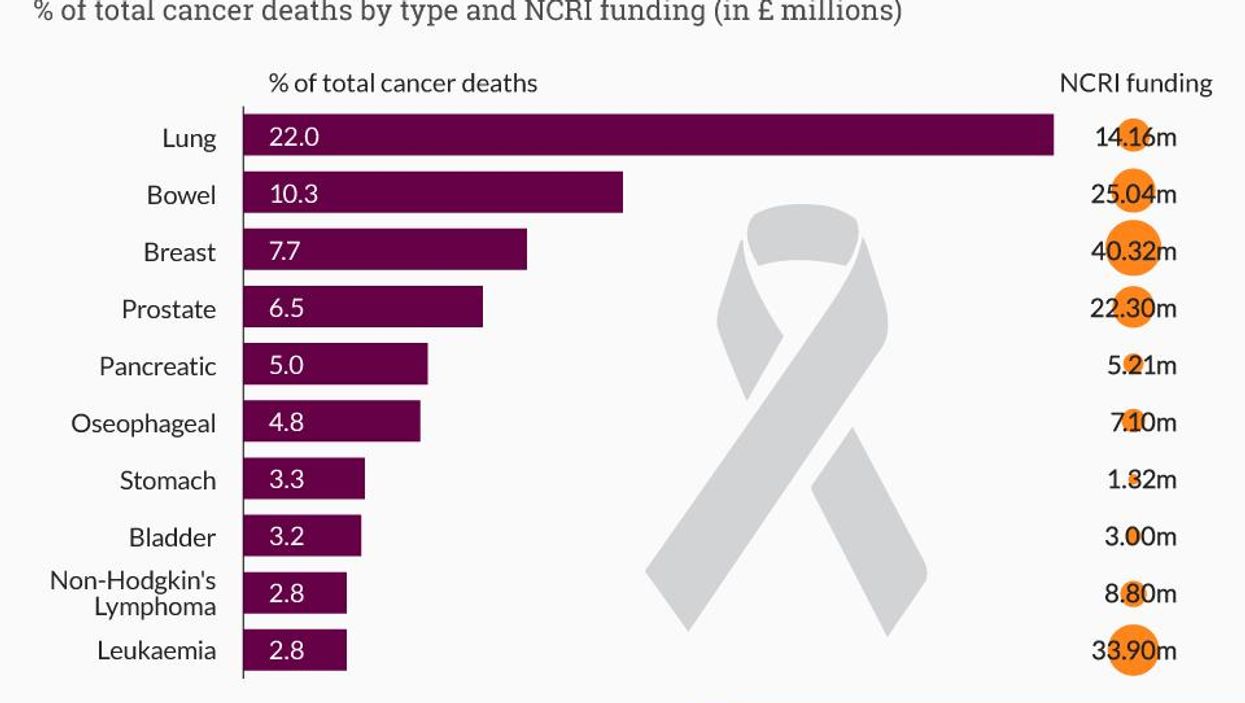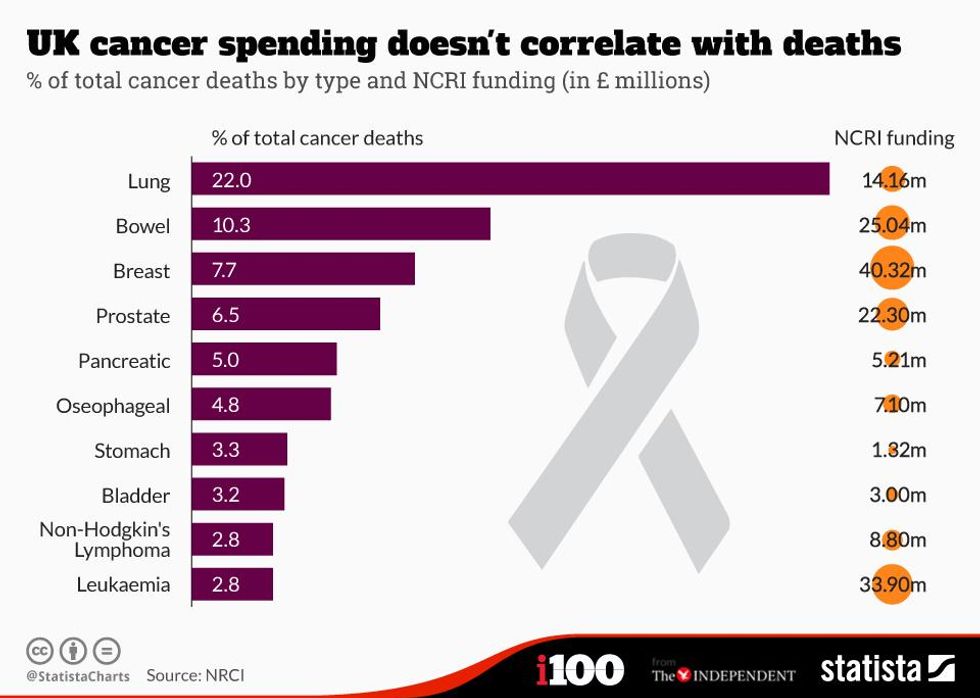News
Matthew Champion
Oct 02, 2014

This year Cancer Research UK announced it would increase research funding by 50 per cent over the next decade.
As the above chart from Statista shows, some types of cancer receive more funding than others.
But this apparent discrepancy can be explained with the fact that areas where advances are being made sometimes means they get more money funnelled towards them.
A cancer charity source said this means that in some cases, cancer death rates could become a self-fulfilling prophecy, where cancers with low survival rates received comparatively less funding as a result.
That was why when it announced its new funding strategy in April, Cancer Research UK said it was targeting four types of cancer with “substantial unmet need” - lung, pancreatic, oesophageal and brain.
Neil Barrie, Cancer Research UK senior science communications manager, told i100.co.uk they were the “only charity funding research to bear all types of cancer”.
We aim to fund the best scientific research, rather than allocating specific amounts to different types of cancer. Crucially, this means we can maximise our chances of saving lives through the money we spend. As part of our new research strategy we have recognised that some types of cancer have worse outcomes than others – so we're aiming to increase the amount we spend on lung, pancreatic, oesophageal cancers and brain tumours.
He explained that the more difficult a cancer is to treat, the more difficult it is to research - patients may be too ill to take part in trials and it can be more difficult for researchers to collect tumour samples.
But with all that said, survival rates are improving. In the 1970s fewer than a quarter of people with cancer survived, but survival rates have doubled over the last 40 years, and the target is now three-quarters of people surviving within the next 20 years.
"Investing more into the very best research and supporting new funding streams to encourage innovation and collaboration will help build on the monumental progress we've made in helping more people survive cancer," Mr Barrie added.
Graphic supplied by Statista.
More: The incentive you need to stop smoking, in one glorious chart
Top 100
The Conversation (0)














